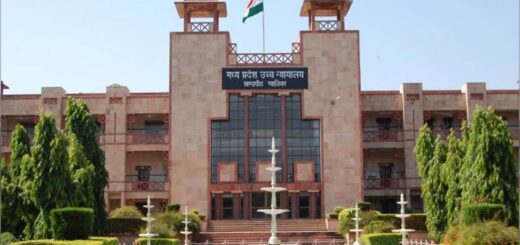The Supreme Court has ruled that disciplinary actions cannot start once an employee retires upon reaching the retirement age or after a long period of service.

The Supreme Court stated that disciplinary actions cannot start after an employee retires upon reaching the retirement age or after an extended service period. This was noted in a Civil Appeal by the State Bank of India (SBI) and its officials, who were contesting a decision from the Jharkhand High Court. The two-Judge Bench, consisting of Justice Abhay S. Oka and Justice Ujjal Bhuyan, explained that if a disciplinary process begins before the officer’s retirement, it can continue after retirement by treating the officer as still in service for the purpose of completing the process, as per Rule 19(3) of the Service Rules. However, no new disciplinary actions can be initiated once the employee has retired.
The Bench also mentioned that if a disciplinary proceeding lacks proper authority, supporting it just because it wasn’t challenged on jurisdiction grounds would mean endorsing an obviously illegal action. Senior Advocate Balbir Singh represented the Appellants, while Senior Advocate Vishwajit Singh represented the Respondent.
The Respondent, an SBI officer, faced disciplinary action that led to his dismissal. He had received multiple promotions and was set to retire on December 26, 2003, but his service was extended until October 1, 2010. In August 2009, he was accused of misconduct, such as approving loans for relatives against banking rules and failing to provide necessary documents, which resulted in his suspension. His appeal against the dismissal was denied by the Appellate authority, as was his Petition for Review. He then filed a Writ Petition in the High Court, which ruled in his favor, stating that the disciplinary action was initiated after his retirement, including the extended service period.
As a result, the disciplinary action was deemed invalid from the start, and the penalty was overturned, with instructions for the Appellants to pay his retirement and other dues. The Appellants chose to start new disciplinary proceedings against him, leading to another dismissal order. His appeal against this decision was rejected, and a subsequent Review Petition was also dismissed. Upset by this, he went to the High Court, which annulled the Review Authority’s decision. The Appellants then appealed to the Division Bench, which agreed with the Single Bench’s ruling. Consequently, the Appellants took the matter to the Apex Court.
The Supreme Court, after considering the arguments from both sides, stated, “The employment relationship between the appellants and the respondent ended on 01.10.2010. The fact that the respondent received a subsistence allowance afterward or announced plans to retire later, on 30.10.2012, upon reaching 60 years of age, does not change the legal situation. Thus, it is clear that the respondent was no longer employed by SBI after 01.10.2010.” The Court clarified that reaching 60 years of age (previously 58) is not the only factor for an officer’s retirement at SBI; it is one of three conditions.
“If any of these three conditions are met, an officer will retire. The respondent actually retired from SBI on 26.12.2003 after completing 30 years of service, but his employment was extended on 05.08.2003 from 27.12.2003 to 01.10.2010. After 01.10.2010, there was no further extension,” it noted. Consequently, the Supreme Court dismissed the Appeal and ordered the Appellants to promptly pay all service dues to the Respondent within six weeks.
Cause Title: State Bank of India & Ors. v. Navin Kumar Sinha (Neutral Citation: 2024 INSC 874)









